The future of cars isn't simply switching from gasoline to electric power or moving around the angles of body panels to suit current trends. It's sustainable, boundary-pushing design that literally reinvents the wheel.
Hyundai Motor Group (HMG), the parent company of the Genesis, Kia and Hyundai brands, is taking an aggressive tack, using the brainpower and creativity found at the Rhode Island School of Design (RISD) to inspire its team, discover future designers and search for paths forward when it comes to vehicle design.
"RISD offers HMG—and other partners that work with us from various industries—a chance to think in entirely different ways that question the assumptions behind initial or usual approaches," Sarah Cunningham, vice provost for strategic partnerships at RISD, told Newsweek. "We like to turn the problem set upside down and inside out before developing a research trajectory. This allows us to engage in untapped avenues for development."
For the automotive industry, that means using natural inspiration, among other strategies, to help create more sustainable vehicles.
"Autonomous vehicles, electrification and alternative fuels such as hydrogen fuel cells are setting the stage for rethinking the entire future of mobility, with so much possibility for design innovation, from the vehicles themselves to how we think of roads and even the future of cities," Jennifer Bissonnette, interim director of the Edna W. Lawrence Nature Lab at RISD, told Newsweek.
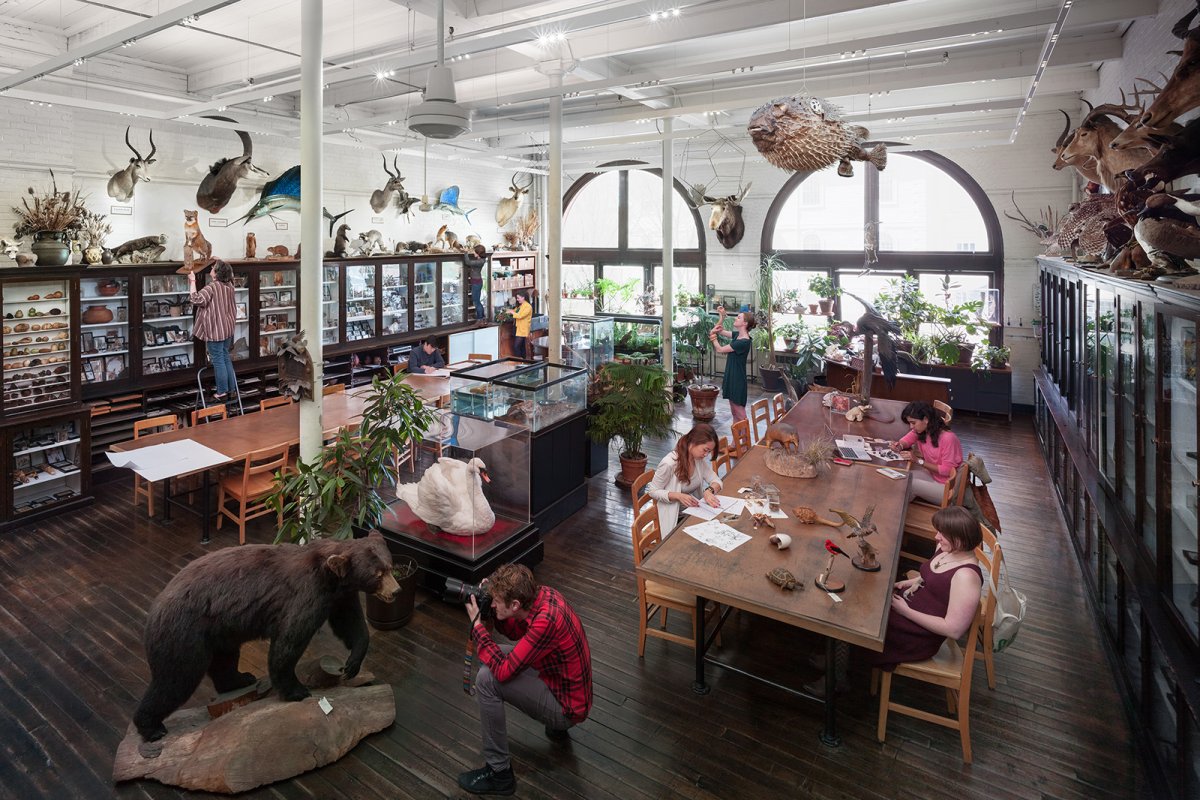
Students and faculty at the Nature Lab are considering mobility as a driving force for positive change. One tact is looking at vehicles like they are organisms, efficiently built with materials that would be infinitely recyclable into either technical or biological nutrients. RISD students are thinking about cars that create clean air or drinking water, and recentering cities around human and ecological health.
"Our students and faculty are exploring just this kind of nature-informed design, with inquiry that scales from the microstructures on insect wings that allow them to stay clean and dry, to ways of transitioning old infrastructure such as parking garages into hubs for community building and local food resilience," Bissonnette said. "RISD offers the possibility of both near-term design improvements and long-term envisioning of what nature-informed, sustainable mobility could look like."
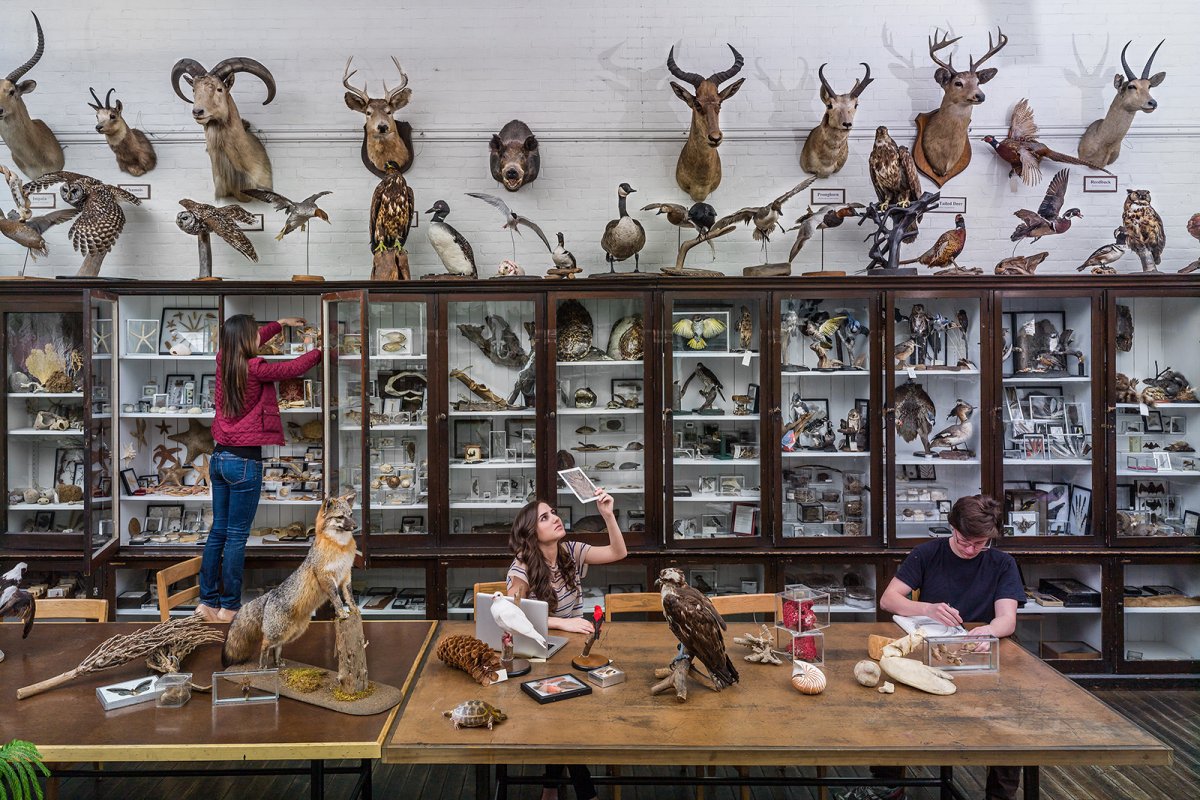
On a recent tour of the school, RISD's team took Newsweek behind the scenes and showed off the facilities that are home to this unique initiative.
The partnership allows HMG employees to gain access to RISD's Edna W. Lawrence Natural History Collection. The Nature Lab contains about 100,000 specimens, including shells, rocks, worms, birds and large mammals. They're kept in cases, drawers, taxidermied and on display, and mounted on the walls as if peering down at the students studying them below. Its design takes inspiration from 17th-century vintage cabinets-of-curiosities, but the specimens aren't being used to reimagine the past—they're being deployed for the sake of the future.
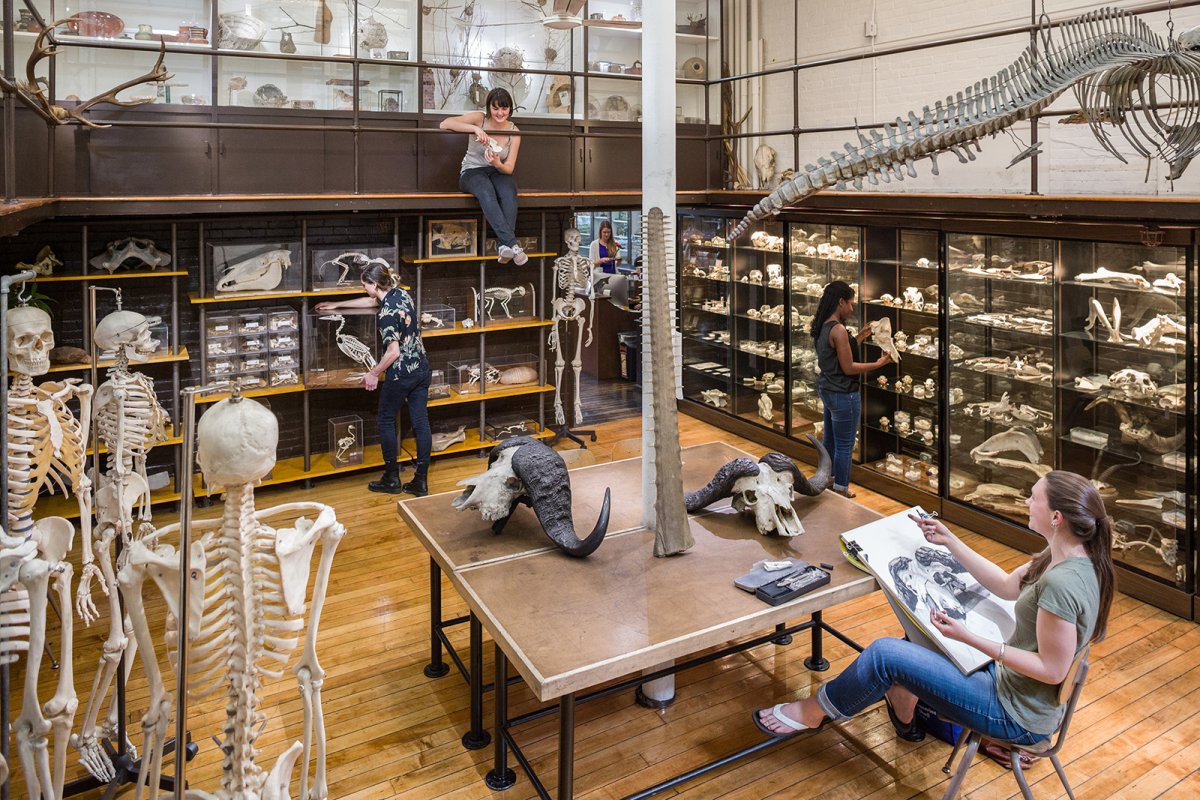
"The track record and experience of the Nature Lab is invaluable to this project. A decades-long commitment to observing the natural world, conducting fieldwork, utilizing imaging tools for visualization and seeking biological expertise to connect to design departments and fine arts projects means that RISD has a very specific expertise shaped over the years (well before the climate crisis) to prioritize the natural world in arts/design training," Cunningham said.
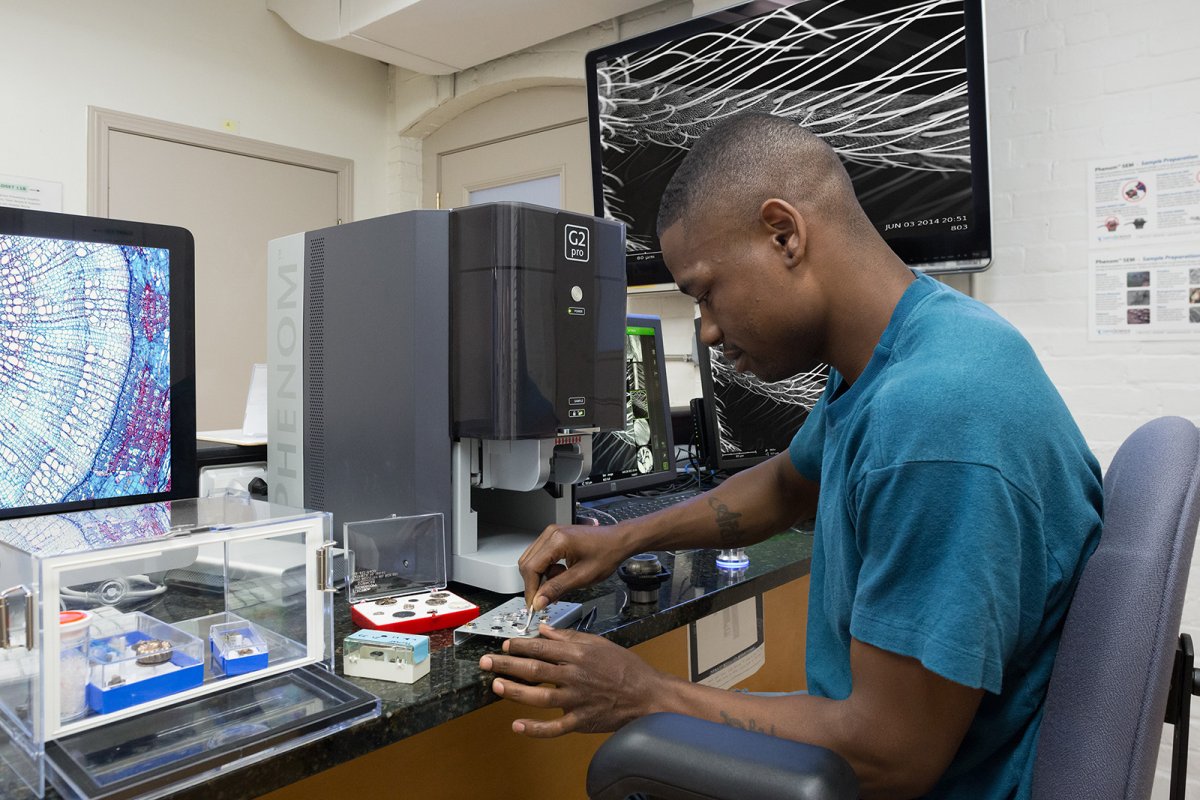
Small specimens can be found at RISD's Microscopy Lab. Here, thousands of creatures are stored in two-inch-by-two-inch acrylic boxes awaiting their turn under the stereo microscope. This type of equipment specializes in the viewing of items that are not opaque, and can magnify them up to 185 times their natural size. Using microscopes like this allows researchers to take digital images of the specimens.
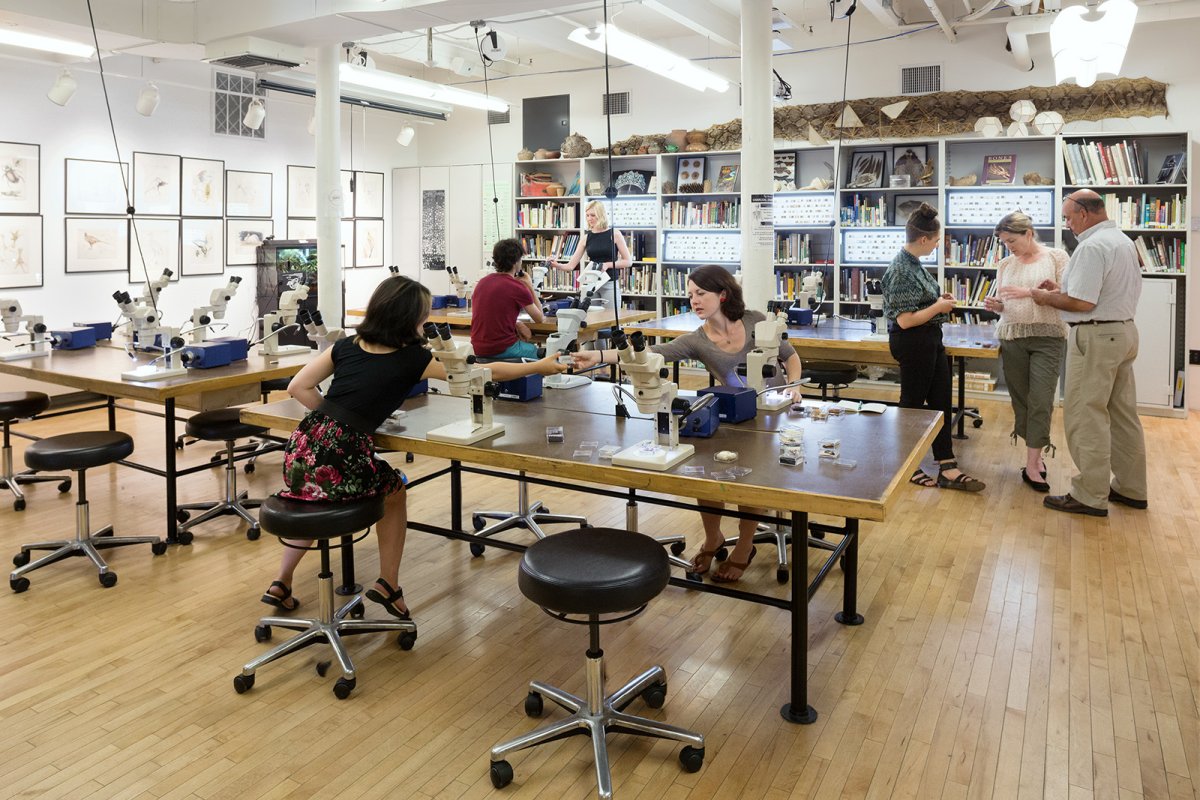
The even-smaller fungus spores and plant cells, among other microscopic matter, are stored on glass slides where students and faculty use compound microscopes, which have the ability to magnify the specimens up to one thousand times their real size. For organic and inorganic materials, RISD also has a scanning electron microscope.
By magnifying them up to 45,000 times their actual size, researchers gain a new perspective on surfaces frequently thought of as being smooth, like poppy seeds, and inside the structures of crystals. This gives new insights in both design and utility of the materials, which can then be iterated upon when thinking about vehicle design.
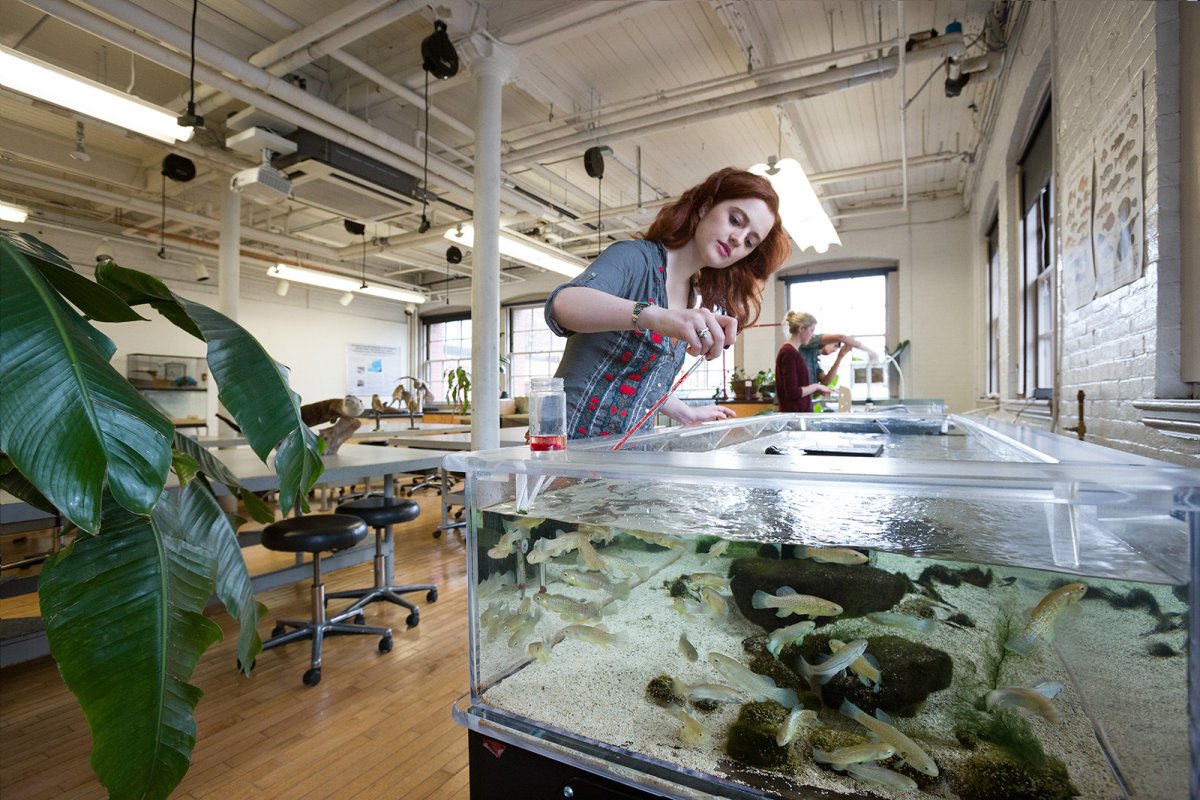
The Nature Lab isn't just home to creatures whose time living on this planet has passed, or objects that were formed by nature to reside alongside those creatures. There are also several live animals (arthropods, mollusks, jellyfish and small mammals) who call RISD home. Their purpose is to provide insight into biology and behavior in ways that lifeless specimens cannot.
About the writer
Eileen Falkenberg-Hull leads the Autos team at Newsweek. She has written extensively about the auto industry for U.S. News & ... Read more
To read how Newsweek uses AI as a newsroom tool, Click here.



